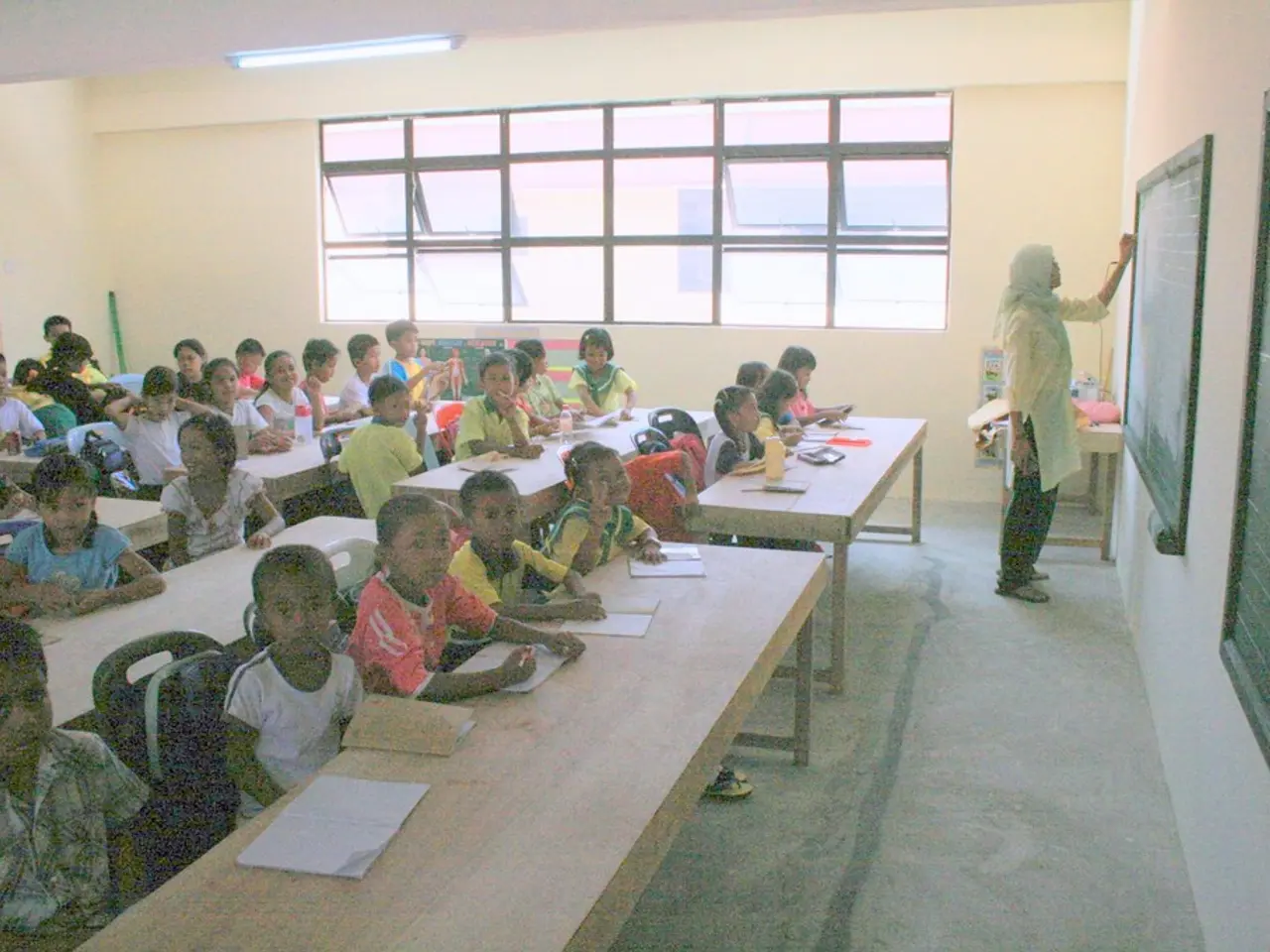Optimized IEP Targets for Resolving Challenges, Enhancing Student Achievement
In the realm of childhood development, problem-solving skills are a crucial asset that equips children with the ability to identify, describe, and resolve issues they encounter. However, signs of potential difficulties in this area can manifest in various ways, such as a child's inability to complete games and puzzles, or their struggle to break a larger problem into smaller, manageable parts.
To address these challenges, it's essential to start with a thorough assessment. Our Executive Functioning Assessment serves as a valuable first step in addressing problem-solving goals. Additionally, the Real Life Executive Functioning Skills Assessment can help pinpoint where a child is struggling in problem-solving.
It's important to remember that a child's ability to solve problems is closely related to other executive functioning skills, such as task initiation and organization. Involving all members of a child's care team, including family members, coaches, teachers, and other professionals, can provide a holistic understanding of the child's strengths and areas for improvement.
One strategy to help a child become a better problem solver is the IDEAL Method. This method encourages children to Identify the problem, Develop possible solutions, Evaluate the solutions, Act on the best solution, and Look back to learn from the experience. Motivation plays a significant role in teaching new executive functioning skills, so incorporating a child's favorite activities into learning can make the process more engaging.
Role-playing is an effective way to help a child practice their problem-solving skills in various situations. For instance, role-playing conflict resolution scenarios can help children learn to offer apologies and use calm language when resolving disputes.
When writing problem-solving goals for an Individualised Education Program (IEP), it's crucial to follow the SMART goal framework. Goals should be Specific, Measurable, Achievable, Relevant, and Time-bound. For example, a goal might be: "By the end of the academic year, the student will independently solve 3-step math problems with 80% accuracy in the general education classroom, as measured by teacher work samples in 4 out of 5 trials."
To ensure a well-rounded approach, focus on other areas in which the child struggles as well. For instance, goals might include following multi-step daily routines or managing transitions with minimal prompts (adaptive skills), resolving conflicts by using learned strategies during unstructured activities (social skills), answering inferential questions after reading passages with specified accuracy (reading), solving multi-step problems independently with stated accuracy and time parameters (math), organizing ideas in writing tasks or editing for clarity (writing), and using executive function strategies like shifting tasks or managing time (executive functioning).
Remember, every child is unique, and goals should reflect their individual needs and learning context. Collaborate with families, educators, and specialists to ensure goals are relevant and measurable, and request revisions if they are vague or lack measurable criteria. This approach promotes accountability and targeted support designed for each student’s success in problem-solving across skill areas.
For more executive functioning IEP goal ideas, visit the EF IEP Goal Resource Hub. The IEP Goal Bank also offers 1,282 ready-to-use IEP goals across 30+ skills, including the goals outlined in this article.
It's essential to remember that struggling with problem-solving skills can lead to problem behaviours such as talking back, aggression, and self-destructive behaviours. By addressing these challenges early and effectively, we can help children develop the essential skills they need to navigate life successfully.
In the process of fostering a child's personal growth and learning, incorporating lifelong skills like goal setting, time management, and life skills is beneficial for addressing problem-solving challenges. The IEP, following the SMART goal framework, can help define specific, achievable, relevant, and time-bound problem-solving goals in an education-and-self-development context. Furthermore, learning other executive functioning skills, such as task initiation and organization, can support a child's overall problem-solving ability.




